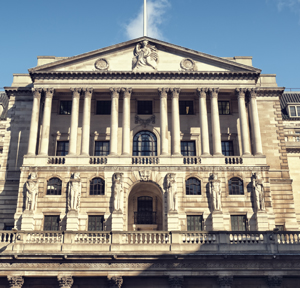Danish authorities investigate former top regulator
Chris Hamblin, Editor, London, 25 June 2019

The Danish newspaper Børsen has reported that Henrik Ramlau-Hansen, recently the chairman of the Danish Financial Supervisory Authority and before that a member of the board of Danske Bank, is being investigated by the authorities about his time at the bank. It is unclear at this stage, however, whether he has been charged.
Ramlau-Hansen was the chairman of Finanstilsynet, the Danish FSA, in 2016-18. He stepped down from that post on the same day as the publication of the FSA’s report about Danske Bank’s Estonian branch, which covered the part of his career when he worked at the bank as its chief financial officer. An American document from January states that he held that position at Danske between 2011 and 1 April 2016.
Contrary to the information that Compliance Matters obtained when it contacted the prosecutor's office today, the Børsen report states that Ramlau-Hansen has been charged with an unspecified offence to do with Danske Bank. This was echoed in an article in the London Financial Times, which made similar assertions, quoting "people familiar with the investigation."
When Compliance Matters telephoned the Danish State Prosecutor for Serious Economic and International Crime today, a spokesman twice said that there were "no charges yet." He would not, however, be drawn on the subject of any arrest or police raid on his house that might have happened. Regarding this, he said that "we have no comment."
A spokesman for Danske Bank said that he could not confirm or deny the story.
Thomas Borgen, Danske's former CEO, has himself been the subject of a house raid and a charge. Indeed, he was the first of ten managers to be charged last month, according to Reuters. He has been replaced in his post by a Dutch unknown called Chris Vogelzang, formerly of ABN AMRO, who took over last month. Carol Sergeant, formerly of the UK's Financial Services Authority, is also on the board. Danske's share price has halved in value since the scandal first saw the light of day.
In September Danske said that €200 billions' worth of suspicious transactions flowed from the countries of the former Soviet Union through its branch in Estonia, where compliance was lax to say the least. Money was allgedly laundered there between 2007 and 2015. In February Danske Bank announced its intention to cease operations in Latvia, Lithuania and Russia.
On a more minor note, Danske has admitted to having fired Jesper Nielsen, its stopgap CEO who took over from Borgen and left last month, because of a regulatory snarl-up involving over-charging. Finanstilsynet published a press release that says the following.
"The Danish Financial Supervisory Authority is conducting a study of Danske Bank's advice to customers on investing in the product Flexinvest Fri with expected negative net return.
"Danske Bank has today announced that a large number of customers have been given incorrect advice on investing in variants of the portfolio management product Flexinvest Fri. At the time the bank sold the product, it expected that customer returns after fees would be less than the 0% interest rate on deposit accounts.
"The Danish Financial Supervisory Authority has for some time been conducting an investigation of the case with a focus on violation of investor protection rules [and] expects to take a decision in the case in late summer.
"Low interest rates have increased the risk that customers receive poor advice on investment products. The risk of poor advice is particularly great when it comes to customers with a low risk preference, a short horizon for their savings or both."
A Danske bank press release adds: "Jesper Nielsen has made significant contributions...for which we thank him. [He] did not to a sufficient degree ensure that the Flexinvest Fri product was suitable for the bank’s customers. Therefore, we find that Jesper cannot continue in his position.
"Jesper Nielsen will now be released from his duties. Until a replacement has been found, Glenn Söderholm, [a] member of the executive board and in charge of the banking activities in Norway, Sweden and Finland, will also take responsibility for the banking activities in Denmark."
Danske Bank must now pay 400 million krone (US$60½ million) back to customers who have bought the Flexinvest Fri product. About 87,000 customers are affected. This appears not to be the end of the story, as other Danish banks - and other CEOs - might find themselves in similar trouble.












